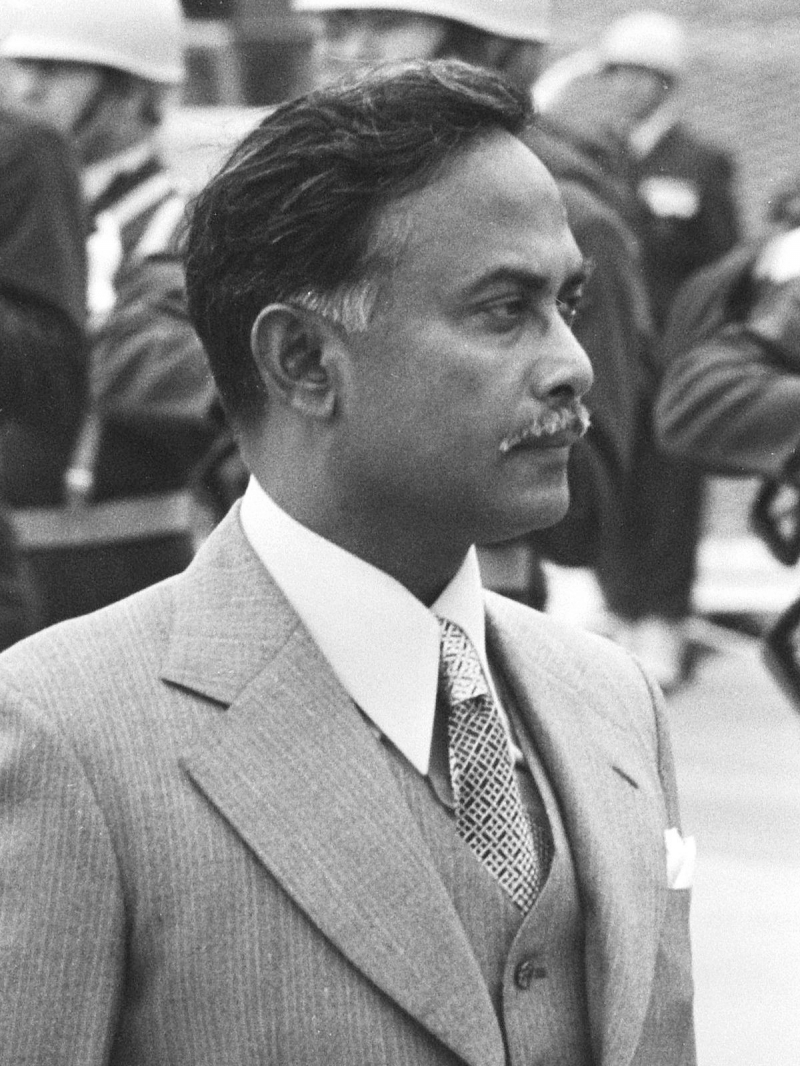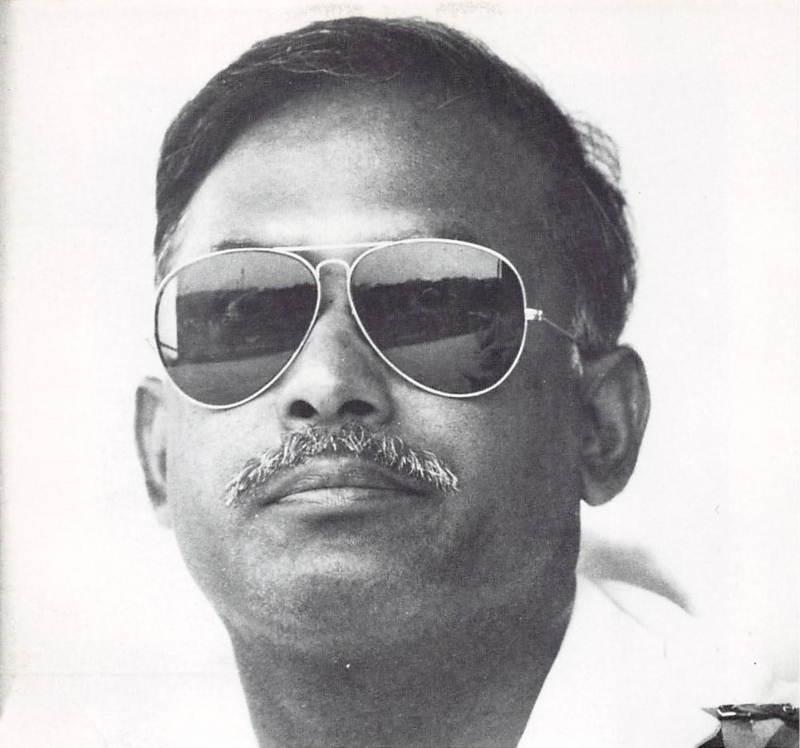Ziaur Rahman
Ziaur Rahman (January 19, 1936 - May 30, 1981) was a Bangladeshi military officer and politician who served as the country's President from 1977 to 1981. He is among the most important historical figures in Bangladesh. He was assassinated on May 30, 1981, in Chittagong, during an army coup d'état.
During the country's independence war from Pakistan in 1971, Rahman was a Bangladesh Forces Commander of BDF Sector BDF Sector 1 initially, and from June as BDF Commander of BDF Sector 11 of the Bangladesh Forces and the Brigade Commander of Z Force from mid-July. On March 27, he broadcast the Bangladesh Declaration of Independence from Chittagong's Kalurghat radio station. Rahman rose through the ranks of the Bangladesh Army, serving as a brigade commander, deputy chief of staff, and chief of staff. His rise to power was the result of a conspiracy that began with the assassination of Bangladesh's founding president, Sheikh Mujibur Rahman, in a military coup d'état, followed by a coup and counter-revolt within the military to seize control of the country. Under the Mushtaq government's martial law, Ziaur Rahman gained de facto power as the head of the government. In 1977, he was elected President.
Rahman established the Bangladesh Nationalist Party as president in 1978. (popularly known by its abbreviation BNP). He restored multi-party politics, press freedom, free speech, free markets, and accountability. He started mass irrigation and food production programs, as well as social programs to improve people's lives. His government spearheaded efforts to form a South Asian regional group, which later became SAARC in 1985. He improved Bangladesh's relations with the West and China while breaking with Sheikh Mujibur Rahman's close alliance with India. Domestically, Rahman faced as many as twenty-one coup attempts, for which trials were held, and many soldiers and officers of the Bangladesh Armed Forces were executed, the majority of whom were accused of biased and false trials. He was chastised for enacting the Indemnity Act and lifting the prohibition on religion-based political parties.
Rahman received two gallantry awards for his service in two South Asian wars. Hilal-i-Jurat for his contributions during the Indo-Pak War in 1965, and Bir Uttom for his contributions during the Bangladesh Independence War in 1971. According to Anthony Mascarenhas' 1986 book Bangladesh: A Legacy of Blood, Rahman retired from the Bangladesh Army as a Lieutenant General on April 28, 1978.
The BNP, the political party he founded in 1978, rose to become one of Bangladesh's top five political parties. His wife, former Prime Minister Khaleda Zia, is the current chairperson of the BNP.








